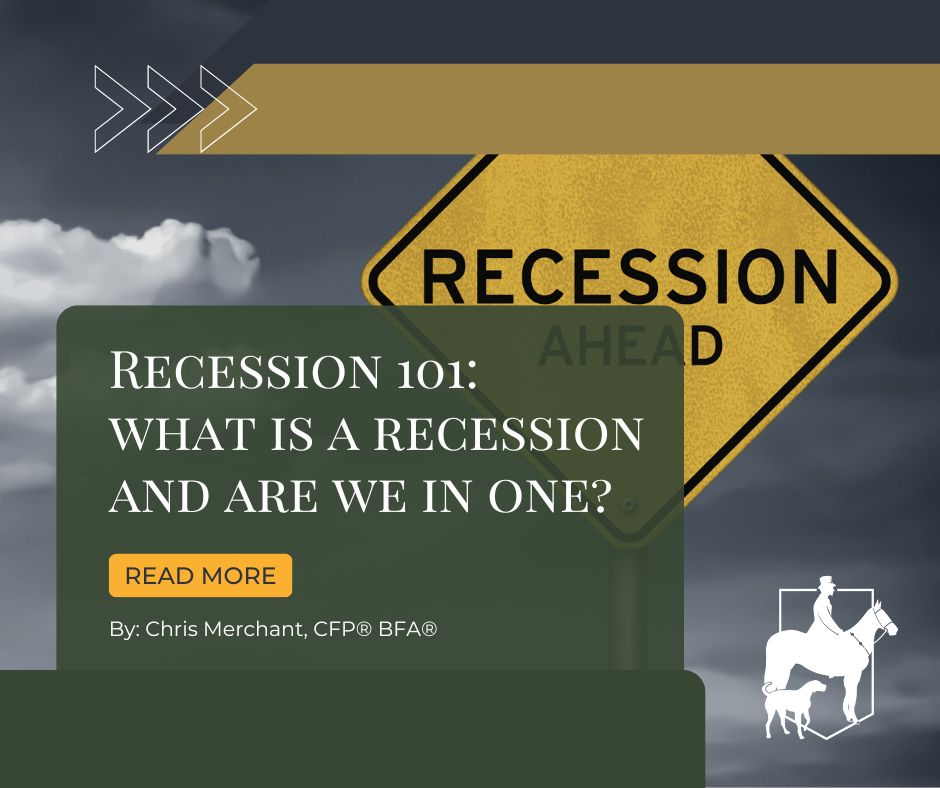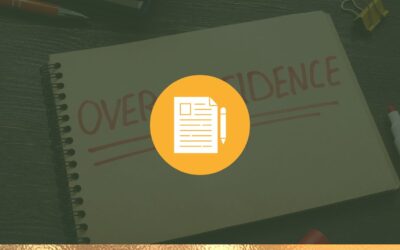Recession 101: What is a Recession and Are We in One?
By: Chris Merchant, CFP® BFA®, Written December 2022

You may have heard the term recession thrown around a lot lately, but what does it actually mean? Referencing my college Economics 101 class…
A recession is defined as two consecutive quarters where the nation’s gross domestic product (GDP) declines.
GDP is the value of a country’s products and services over a certain amount of time.
So, a decline in GDP for two back-to-back quarters means the economy is shrinking and is therefore in a recession. I like that definition because it’s very clear-cut – we are either in a recession or we are not.
Based on that definition, the US entered a recession this past Summer of 2022.
However, before you start sounding alarms, the textbook definition and the real-world declaration of a recession are not always in sync.
The National Bureau of Economic Research (NBER), the entity that decides if we’re in a recession, has a more nuanced definition of a recession. They define it as being a “significant decline in economic activity that is spread across the economy and that lasts more than a few months.”
They get to decide what “significant” means.
The NBER concluded that the recent decline in GDP was not significant enough to be called a recession.
They may revise their current position when they receive more economic data. This sometimes takes months to announce.
So, we’re left to wonder – are we, or aren’t we?
In my professional opinion, we entered a recession in the Summer of 2022, and I also think the NBER will revise its current position and admit we did, in fact, enter a recession somewhere around that time period.
The past teaches us that we’re usually well on our way out of a recession before economists come to a consensus that we were ever in one to begin with.
Is this information important to you as an investor or a retiree (or soon-to-be)?
Not really. And here’s why…
The best investment plans and retirement income plans are proactively not reactively put into place. Your portfolios and plans for retirement should not change based on what’s taking place today or on speculations about what may happen in the future.
You should think and act strategically (following a thoughtful plan) rather than reacting to the ever-changing ocean of world events.
So, while it’s important to stay aware of what’s happening in the world and the economy, don’t let news headlines control your investment decisions.
Stay focused on your plan, and trust that you have it in place for the long run. That way, no matter if we’re in a recession or not, you can rest assured that you are well-prepared for the future.
If you need a plan or feel as if your current advisor has not properly prepared you for the future, please reach out.




